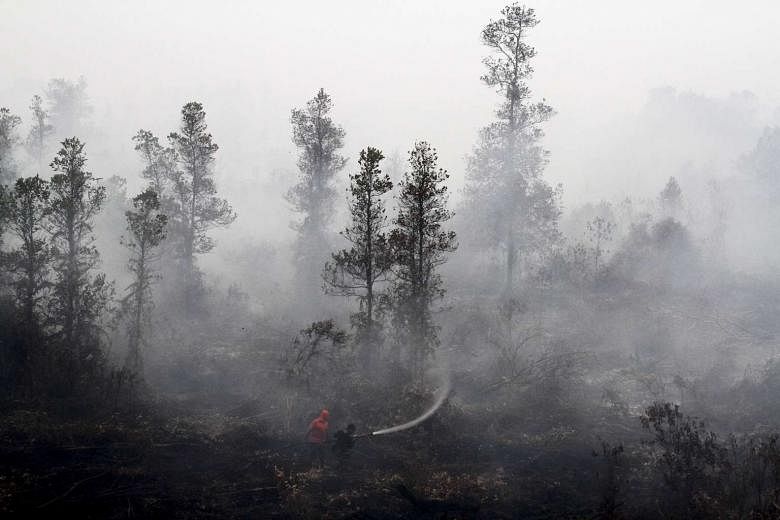JAKARTA (AFP) - Indonesia has pledged to cut its greenhouse gas emissions by 29 per cent by 2030 through stepping up protection of forests and boosting the renewable energy sector, but observers criticised the plan as lacking in detail.
Indonesia, one of the world's biggest greenhouse gas emitters, said it would reduce deforestation, restore degraded forests, and lift the share of renewable energy to almost a quarter of the national energy mix in a decade, according to the country's official UN filing.
The sprawling archipelago is home to vast tracts of tropical rain forest but much has been felled in recent years, to be sold as timber and to make way for palm oil and pulp plantations, greatly increasing the country's emissions.
The 29 per cent reduction by 2030 is relative to a business-as-usual scenario without climate action, according to the pledge filed on Thursday, the latest to be submitted ahead of UN talks on a climate rescue pact in December in Paris.
With international assistance, such as financing, the pledge raises the target to a 41-per cent cut by 2030. Previously in 2009, Indonesia had vowed to cut emissions by 26 per cent by 2020.
"Beyond 2020, Indonesia envisions an even bolder commitment to emission reductions," said the country's UN submission, known as an Intended Nationally Determined Contribution (INDC).
However, think-tank the World Resources Institute (WRI) said the document lacked key information, such as an estimate of financial assistance needed to reach the 41-per cent target, and did not go into detail about how to tackle recurring forest fires that contribute greatly to Indonesia's emissions.
The pledge was released as Indonesian slash-and-burn agricultural fires send smog floating over Southeast Asia, with neighbouring Singapore on Friday closing all schools as air quality deteriorated to hazardous levels.
The illegal fires, mostly set to clear land for plantations, are an annual occurrence and Jakarta has come under pressure to do more to stop them.
"The government has taken positive steps in the process of developing the INDC, but it can be further improved with more details to ensure the plan's effectiveness," said Nirarta Samadhi, head of the Indonesia office of WRI.
Indonesia is the world's fifth-biggest greenhouse gas emitter if forest loss is taken into account, according to the WRI.
More than 70 governments have so far submitted their INDCs, which will form the backbone of a universal climate pact to be forged at a November 30-December 11 United Nations conference in the French capital.
The deal will seek to limit global warming to two degrees Celsius (3.6 degrees Fahrenheit) over pre-Industrial Revolution levels.

